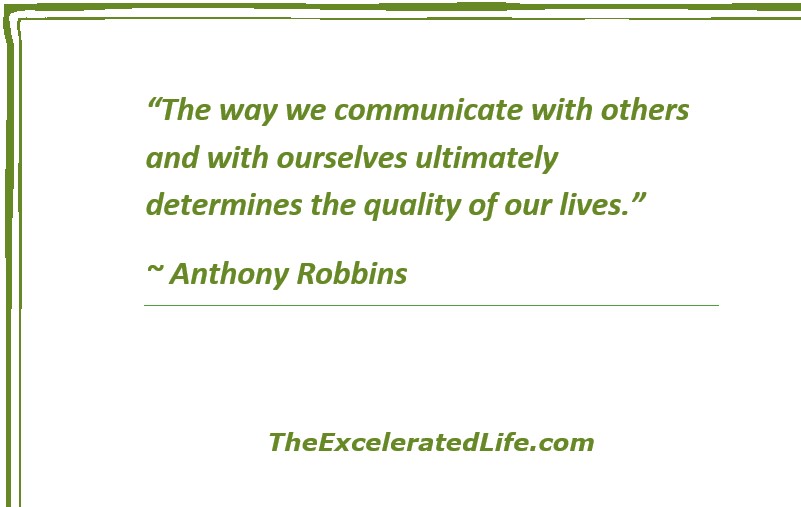How do you respond when your spouse or a good friend relates some good news? Research shows that how you celebrate is one of the best predictors of a strong relationship.
TheExceleratedLife.com

Responding To Good News
Suppose you meet with a friend for coffee and she shares some really good news . . . she’s just landed a great new job. What would you say?
- “This is wonderful news! Tell me about it. What did they say when they offered you the job? What will you be doing? They couldn’t have selected a better person for the job!”
or
- “That’s nice. Congratulations.”
or
- “Oh, my. That sounds like a lot of responsibility – are you sure you can handle it? You’ll probably be away from home a lot more – I hope you won’t be neglecting your family.”
or
- “Let me tell you what happened to me today.”
Four Types of Responses
Most researchers in the area of marriage and relationships concentrate on how to manage conflict – “how to fight” – or how to cope when bad things happen. Shelly Gable, a psychologist at the University of California, has looked at it the other way round . . . she studies ways to make a marriage or relationship stronger and better. One good way is to be aware of how you respond to another’s good news.
Gable identifies four categories of response to good news: (1) Active and Constructive – you react enthusiastically; (2) Passive and Constructive – you’re happy but generally unresponsive; (3) Active and Destructive – you respond with the negative aspects of the news; and (4) Passive and Destructive – you are uninterested.
Gable’s research has shown that couples with an active / constructive mate are “more in love, more committed, and have more marital satisfaction”. (Seligman “Love and Positive Events”)
Responding Actively and Constructively
However, Active / Constructive is not the default response for most of us. It may require some pre-planning and thought before hand. Here are some suggestions.
- Think about some past events when someone has shared good news. If you didn’t respond actively and constructively, how could you have changed your response? What could you have said?
- Consider some events that you might encounter in the next few days. How can you respond actively and constructively to these events?
- Be sincere. If a gushing, over-the-top response is not “you”, then don’t respond that way now. You can respond actively and constructively without going overboard. Just be aware that interest and enthusiasm are part of the active / constructive response. So be enthusiastic and sincere.
- Practice. Be on the look out for chances to polish up your Active / Constructive response. If you miss a chance, go back over the event in your mind and think of how you could have responded.
- If a full blown Active / Constructive response is too hard for you at the outset, practice this technique — eliminate the “buts”. Chris Peterson calls this Active / Constructive Lite. (Peterson) When someone relates good news, respond to them without using the word “but”. This is a simple way to start yourself on the path to more productive responses.
Worth the Effort
This exercise isn’t always easy but the benefits are well worth the effort. It gets easier with practice, so keep it up and soon you’ll be responding actively and constructively automatically. Once you start, other people like you more, they seek you out, and they share more intimate details of their lives. You feel better about yourself and that strengthens your skills at using this response. If this sounds like an upward spiral, you’re right. And that is Excelerating!
Excelerated Positivity™ — building the skills in positivity that help you flourish — is one step in creating your Excelerated Life™, a life of flourishing and well-being, and a life of meaning, purpose, and service.
Resources:
Peterson, Ph.D., Christopher. “A But-Free Day.” Psychology Today. Psychology Today, 12 Oct. 2011. Web. 11 Oct. 2018.
http://www.psychologytoday.com/blog/the-good-life/200905/free-day
Seligman, Ph.D., Martin E. P. Flourish. New York: Free Press, 2011
Seligman, Ph.D., Martin E. P. “Love and Positive Events.” Authentic Happiness. The University of Pennsylvania, September 2003. Web. October 12, 2011.
https://www.authentichappiness.sas.upenn.edu/newsletters/authentichappiness/love

